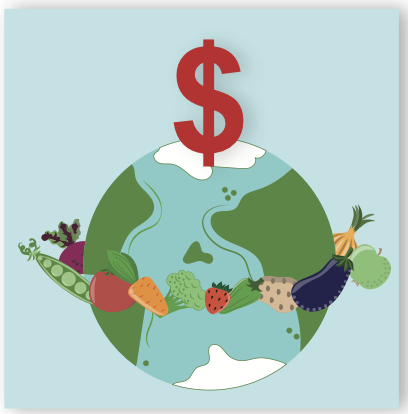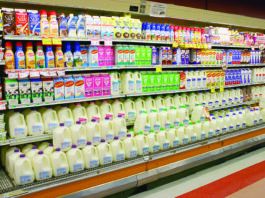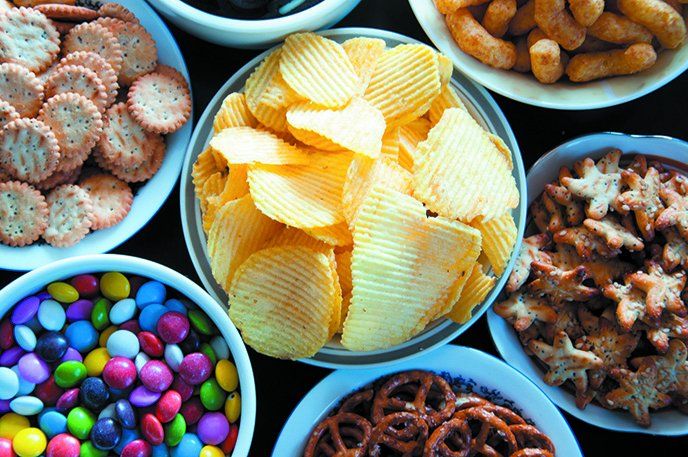Uptick Reported in Healthier Dietary Choices
Americans are eating healthier - resulting in an estimated 1.1 million fewer premature deaths since 1999 - but still have a long way to go.
Time and Place Drive Snack Picks
How you snack partly depends on when and where youre noshing. Savory snack consumption peaks at midday, according to the NPD Group market-research firm. The desire to reach for something sweet, on the other hand, grows after dinner and peaks at 8 p.m.; more than a third of sweet snacks are consumed after dinner.
From Instagram to Your Waistline
Consuming "food porn" might encourage consumption of actual, high-calorie food. In a review of recent scientific findings, Oxford University researchers concluded that regular exposure to "virtual food" in advertisements, TV cooking programs and social media contributes to cravings for the non-virtual kind.
You Might Live Longer Than You Think
The good news is you might live longer than you expect. The bad news is that such inaccurate estimates could cause you to skip lifestyle changes that can make your remaining years healthier and more independent.
Less-Regulated Supplements Send 23,000 to ER Annually
Products sold as "dietary supplements" lead to about 23,000 emergency-room visits and more than 2,100 hospital admissions every year, a new government report estimates.
Convenient Calories Linked to Extra Weight
That old joke about being on the "See-Food Diet" ("I see food… and I eat it") is no laughing matter, according to new research at Cornell University. Brian Wansink, PhD, and colleagues studied 210 kitchens and the women who use them.
New Labeling for Drug-Free Meats
Following concerns about antibiotics in meat and poultry, the next target in efforts to avoid drugs at the meat counter may be "beta-agonists." The drugs are used to add muscle weight to animals in the weeks before slaughter.
Carbs Crucial to Early Humans Brains
Adherents of the so-called "Paleo diet," which emphasizes meat and attempts to replicate what humans ate in the Paleolithic period, may want to set down their steaks long enough to say thanks for starchy carbs.
USDA Sets Goal to Reduce Food Waste
The US Department of Agriculture is declaring war on food waste, likening the effort to the anti-littering campaigns of the 1960s and 1970s. Agriculture Secretary Tom Vilsack announced a goal of cutting the amount of food Americans waste by 50% by 2030.
Diet Soda Drinkers Eat More Junk Calories
Do you want a candy bar with that diet soda? University of Illinois researchers report that people who drink diet beverages are more likely to allow themselves treats, sometimes referred to in technical terms as "discretionary foods."


























